Crisis management
Be ready when needed
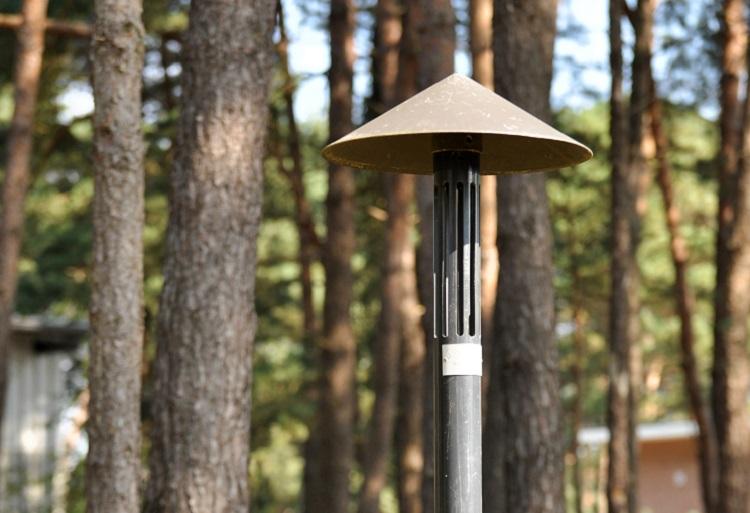
Permanent radioactivity measurements
The Federal Agency for Nuclear Control (FANC) keeps a close eye on the radioactivity levels on Belgian territory. The agency manages the TELERAD network: over 250 measuring stations measuring the radioactivity in the air and surface waters 24/7. They also take and analyse air, water, soil and food samples on a permanent basis, with SCK CEN making an important contribution to this. As soon as a limit is exceeded, an alarm is activated.
How often does this occur? The nuclear industry is subject to strict safety rules and procedures. The risk of a serious nuclear incident is therefore small but can never be ruled out. Upon a nuclear incident or accident, radioactivity may be released into the air, water and/or the soil. To be able to take appropriate measures, the government must be able to assess the situation correctly.
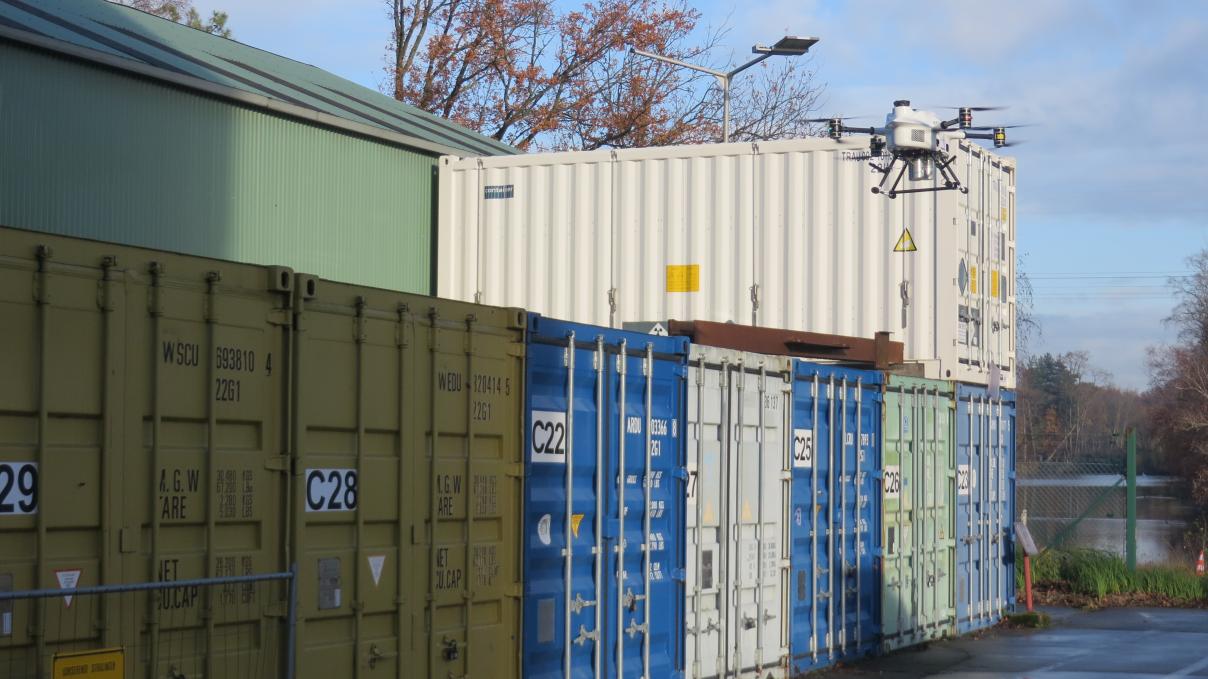
Measuring Cell with innovative gadgets
To be able to rapidly map contamination or a radioactive cloud, SCK CEN also performs measurements from the air using drones and/or helicopters. Besides, SCK CEN also advises the government on how to establish a measuring strategy.
Upon a nuclear accident – however small – our Measuring Cell goes to the spot. This Measuring Cell is a team performing radiological measurements under the supervision of FANC. SCK CEN is part of this cell, along with experts from the Civil Protection, the Ministry of Defence, the National Institute for Radioelements (IRE) and the Federal Agency for the Safety of the Food Chain (FASFC). The team regularly organises drills to familiarise itself with specific procedures and exercises for testing the overall operation of emergency plans.
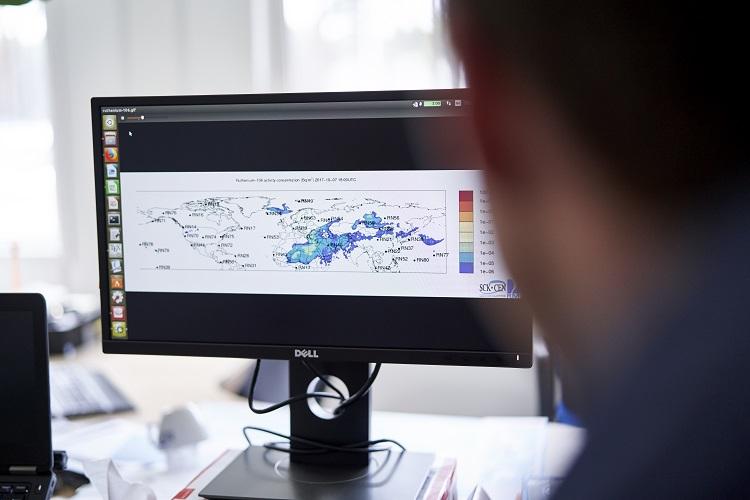
Prediction dispersion
SCK CEN experts have developed atmospheric dispersion models to be able to calculate the radiological impact in case of a nuclear incident. These computer models consider several factors, including meteorological conditions and the properties of the discharged radioactive particles. For instance, radioactive iodine will strongly deposit on the ground, particularly when it rains, whereas noble gases such as xenon and krypton will not.
The models enable SCK CEN to predict how the radioactivity will spread over time. If increased radioactivity values are measured, the researchers can also reverse the calculation to define the source. That is why the models are also used to verify compliance with the treaty on banning nuclear tests.
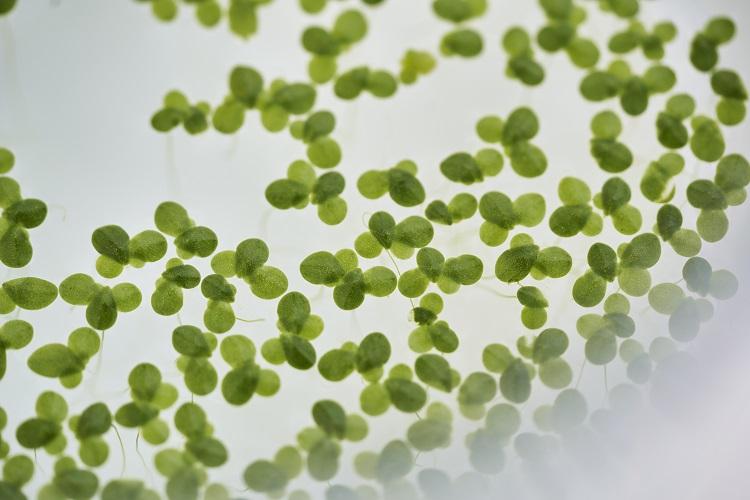
Analysing the impact
SCK CEN maps all factors. Which radioactivity has been released? In which concentrations? How will this radioactivity spread? Subsequently, SCK CEN starts its calculations. How much radioactivity does the population absorb by inhaling particles or when not taking shelter? Will the food chain be contaminated? SCK CEN analyses the expected short- and long-term impact. Based on this impact analysis and within the scope of the federal emergency plan, experts of SCK CEN will propose countermeasures for protecting the public and the environment (e.g. do not eat certain crops).
Expertise thanks to impact studies
Upon a nuclear or radiological incident, SCK CEN supports the government with all the necessary aid and expertise. The research centre gives advice on the basis of the expertise that it acquired through the execution of impact studies. But what exactly are these impact studies? With these studies, SCK CEN aims to understand the behaviour and diffusion of radioactive substances in the environment. What are the underlying processes of such dispersion? Which effect has radiation on plants? To gain insight in all these issues, SCK CEN performs laboratory and field experiments. Subsequently, SCK CEN researchers translate the acquired knowledge into scientific models. These models predict the radiological doses that people and the environment will have to endure. In addition, scientists also develop countermeasures
Do you know what to do in case of a nuclear incident?
In an emergency situation, the operator of the respective installation will focus on the technical aspect whereas the government will focus its attention on protecting the public and the environment. Did you know that you yourself can also limit the consequences? Visit the website www.nuclearrisk.be and discover how you can protect yourself. The ‘nuclear risk’ campaign is an awareness-raising campaign of the Belgian Crisis Centre. The Crisis centre launched the awareness-raising campaign when the national nuclear emergency plan was updated on 6 March 2018.
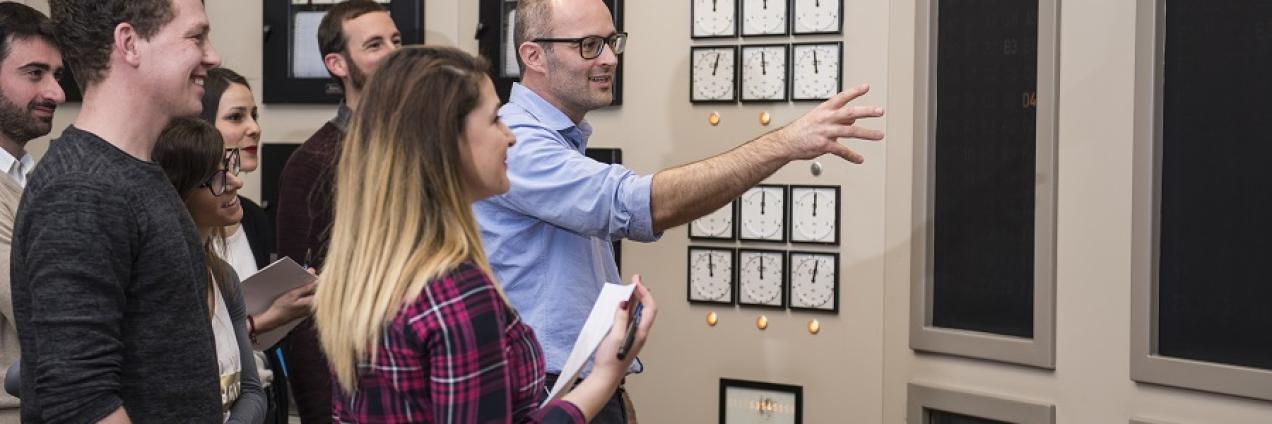
Interested in a training?
Everyone who wishes to learn more about this subject, can enrol for a training course with the SCK CEN Academy.